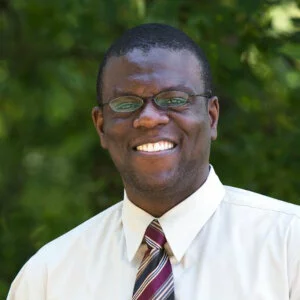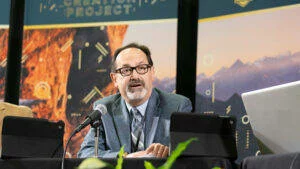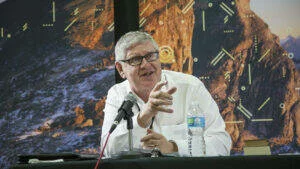The multi-year Creation Project at the Henry Center is part of a broader conversation that has been underway for a long time. The relationship between science and theology has been at the heart of a dialogue unfolding for centuries—or millennia, if you count the early rumblings in patristic and medieval Christendom.E.g., see Edward Grant, Science and Religion, 400 BC to AD 1550: From Aristotle to Copernicus (Baltimore: Johns Hopkins University Press, 2004).
Ian Barbour reignited the debate in 1966 when he published his book, Issues in Science and Religion.Ian Barbour, Issues in Science and Religion (New York: Harper & Row, 1966). He argued that religion and science are not in conflict, like mortal enemies in combat. There is ample room for dialogue and collaboration between these two ancient practices.
In a later book, Barbour condemned the doctrine of inerrancy along with its idea “that scripture is inerrant throughout.”Ian Barbour, Religion in an Age of Science (San Francisco: Harper & Row, 1990), 9. According to Barbour, biblical literalism trumpets infallible Scripture as a sure foundation for knowledge, and thereby abuses science. He warned that inerrantists and scientific materialists are two sides of the coin; for both groups, science and theology are rivals in conflict with each other. Barbour encouraged Christians to lay claim to other models of Scripture, ones that fly free from the inerrancy dogma.
Science, Scripture, and Young Earth Creationism
Young earth creationism is a poster boy for inerrancy. Driven by their understanding of biblical authority, creationists reject wide swaths of mainstream science.Is it really tenable to be a young earth creationist in the face of the overwhelming scientific evidence that counts against it? They display what one critic dubbed the gorilla mindset, “the attitude that if something looks like a duck, walks like a duck, and quacks like a duck, but religious dogma says it is a gorilla, then it is a gorilla.”Phil Senter, “The Defeat of Flood Geology by Flood Geology,” Reports of the National Center for Science Education 31.3 (2011): 1-14. Creationists have therefore garnered the reputation of being anti-science.
That’s not quite fair. Contrary to popular belief, most young earth creationists have a high view of science. Early fundamentalists often disdained evolutionary theory as “science falsely so-called,”E.g., see Edward Davis, “Science Falsely So Called: Fundamentalism and Science,” in The Blackwell Companion to Science and Christianity, ed. J. B. Stump and Alan Padgett (Malden: Blackwell, 2012), 48-60. which implied that they believed in a true or genuine science. Henry Morris and his allies rejected the anti-science label and styled themselves as “scientific creationists.” They were fighting to save science for God’s glory. Creationist arguments, as one source explains,
purport to be scientific arguments. Oh yes, they believe what the Bible teaches. But they do not appeal to the authority of the Bible. Rather, they appeal to what they collect as empirical evidence and rational argument. . . . [T]hey argue that it will be science that demonstrates the validity of their belief in God as Creator and Redeemer.Ted Peters and Martinez Hewlett, Can You Believe in God and Evolution? A Guide for the Perplexed (Nashville: Abingdon, 2006), 65.
In this generation, creationists point to many examples of research on natural history from a biblical perspective. Some noteworthy journals of varying quality include the Creation Research Society Quarterly, Journal of Creation, Journal of Creation Theology and Science Series B, Answers Research Journal, and the proceedings of the International Conference on Creation. Much of that research is laid out in monographs and anthologies (e.g., see the series Core Issues in Creation). Among creationists, these sources signal the ongoing scientific vitality of young earth models.
Regular scientists disagree. None of this creationist work amounts to anything, they insist. Creationist science will always have the stink of dogma with zero empirical support. . . . And round it goes. The present Areopagite tries to bring clarity to this longstanding disagreement by inviting five young earth creationists to answer the question: Is it really tenable to be a young earth creationist in the face of the overwhelming scientific evidence that counts against it? Wherever you land on these difficult questions, we hope this symposium will keep things interesting and open up fresh pathways of understanding.







Comments
Be the first one to make a comment!